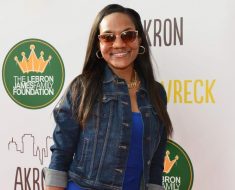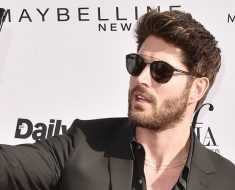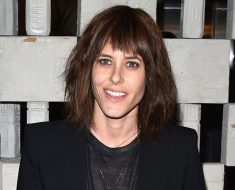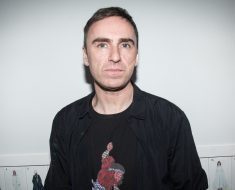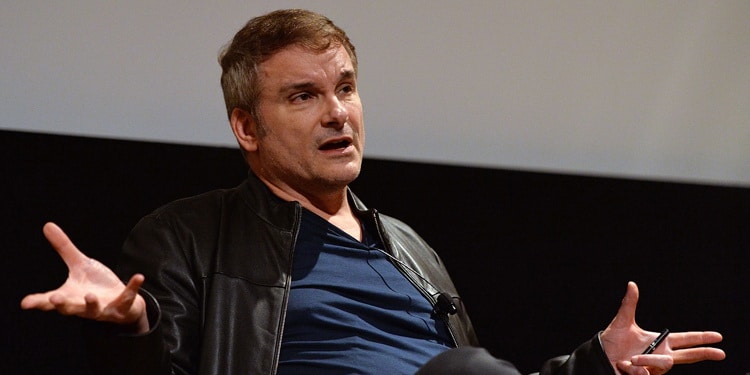
Shane Black net worth is $16 Million. Also know about Shane Black bio, salary, height, age weight, relationship and more …
Shane Black Wiki Biography
Shane Black was born on the 16th December 1962 in Pittsburgh, Pennsylvania USA, and is a filmmaker, producer and actor, best known to the world for writing scripts for such films as “Lethal Weapon”, “Last Action Hero” and “Iron Man 3”, among many other creations.
Have you ever wondered how rich Shane Black is, as of early 2018? According to authoritative sources, it has been estimated that Black’s net worth is as high as $16 million, an amount earned through his successful career, active since the mid- ‘80s.
Born to Patricia Ann and Paul Black, Shane spent his early childhood in Lower Burrel and Mount Lebanon, Pennsylvania, but in his second year of high school, he and his parents moved to Fullerton, California. There, he went to Sunny Hills High School, and after matriculation enrolled at the University of California, Los Angeles, majoring in theater and film.
Since high school, Shane was into writing comics and short stories, and also wanted to work as a journalist, but didn’t pursue a career as a writer until his classmate Fred Dekker showed him a script for a science fiction film which he had done as a school assignment.
Once out of University, Shane found a job as a typist at a temp agency, and also served as a data clerk for the 1984 Summer Olympics in Los Angeles.
However, he gave up a corporate career, and started working on a science fiction film “The Shadow Company”, and with Fred Dekker’s help and his parents’ financial support, Shane was given the chance by 20th Century Fox executives. However, he became tired of rewriting the script, and started working on an action film, which turned out to be “Lethal Weapon”, signing a contract with Warner Bros worth $250,000. His film came out in 1987 starring Mel Gibson, Danny Glover, and Gary Busey, and earned an Academy-Award nomination, while grossing over $120 million at the box office.
Shoutout to Gridiron Heroes Spinal Cord Injury Foundation — and to Vivi Gregg for her great work there. Check them out, if you haven’t. pic.twitter.com/A2hPJblCKY
— Shane Black (@BonafideBlack) April 18, 2018
Following the success of the first film, Warner Bros wanted a sequel and Shane teamed up with novelist Warren Murphy, but Shane’s work wasn’t well received by the studio, and eventually, Shane stopped working on the sequel. He then used an old story from when he was working on “Lethal Weapon”, which eventually became the action film “The Last Boy Scout” (1991), with Bruce Willis, Damon Wayans and Chelsea Field in the lead roles. He continued with action films, such as “Last Action Hero” (1993) with Arnold Schwarzenegger, F. Murray Abraham and Art Carney in the lead roles, and “The Long Kiss Goodnight” in 1996, for which he received $4 million, increasing his net worth by a large degree.
After that, Shane retreated from the public eye until the early 2000s, when he returned with his directing debut “Kiss Kiss Bang Bang” in 2005, starring Robert Downey Jr., Val Kilmer and Michelle Monaghan, which further increased his net worth. Then in 2013, he came to prominence once more by co-writing the script for the sci-fi action adventure film “Iron Man Three” with Drew Pearce, and then directing the Academy-Award nominated film, which grossed more than $1 billion, adding a considerable amount to his net worth. Since then, Shane has directed the action comedy film “The Nice Guys”, with Ryan Gosling, Russell Crowe and Angourie Rice in the lead roles, and he is now working on the sequel to “Predator” from 1987, both as a director and writer.
With some Nice guys A year ago at the #niceguys international premiere at Cannes #cannesfilmfestival #ryangosling #russellcrowe #joelsilver
When it comes to his personal life, Black tends to keep his most intimate details hidden from the public eyes, therefore, no reliable information is available about this successful screenwriter and director, except that he is still single, and there aren’t even any rumours of romantic associations.
IMDB Wikipedia $16 Million 16 December 1961 16000000 1961-12-16 American Angourie Rice Arnold Schwarzenegger Art Carney Bruce Willis Chelsea Field Damon Wayans Danny Glover Drew Pearce F. Murray Abraham Fred Dekker Gary Busey Los Angeles Mel Gibson Michelle Monaghan Patricia Ann James Paul Black Pennsylvania USA Pittsburgh Robert Downey Jr Russell Crowe Ryan Gosling Screenwriter Shane Black Sunny Hills High School Terry Black University of California Val Kilmer
Shane Black Quick Info
| Full Name | Shane Black |
| Net Worth | $16 Million |
| Date Of Birth | 16 December 1961 |
| Place Of Birth | Pittsburgh, Pennsylvania USA |
| Profession | Screenwriter |
| Education | University of California, Los Angeles, Sunny Hills High School |
| Nationality | American |
| Parents | Patricia Ann James, Paul Black |
| Siblings | Terry Black |
| http://www.facebook.com/ShaneBlackPhotographyhttp://www.facebook.com/6LACK | |
| https://twitter.com/bonafideblack | |
| https://www.instagram.com/bonafideblack/ | |
| IMDB | http://www.imdb.com/name/nm0000948/ |
| Nominations | Critics Choice Movie Award for Best Comedy, Hugo Award for Best Dramatic Presentation, Long Form |
| Movies | Iron Man 3, The Nice Guys, Kiss Kiss Bang Bang, The Predator, Lethal Weapon, Predator, The Last Boy Scout, The Long Kiss Goodnight, Last Action Hero, The Monster Squad |
Shane Black Trademarks
- His screenplays usually involve a (private) detective who is (often involuntarily) paired with someone who tends to solve things less professionally, which leads to a love/hate relationship: Lethal Weapon (1987), _The Last Boyscout (1991)_, The Long Kiss Goodnight (1996), Kiss Kiss Bang Bang (2005) and The Nice Guys (2016).
- Six of his screenplays are all set at Christmastime: Lethal Weapon (1987), The Last Boy Scout (1991), The Long Kiss Goodnight (1996), Kiss Kiss Bang Bang (2005), Iron Man Three (2013), and the unproduced Shadow Company.
- Five of his screenplays begin with the letter “L”
- His scripts often combine action, thriller, noir and (black) comedy elements.
- Uses a kidnapping as a plot device (Lethal Weapon (1987), The Last Boy Scout (1991), The Long Kiss Goodnight (1996), Iron Man Three (2013)).
Shane Black Quotes
- There aren’t that many caper films or private eye films. The leg up that I had, the advantage of which I was aware was that I’ve read a thousand books like this. I have them all at home. These sorts of (1940-1970) is just a collection of these paperbacks with the Robert McGinnis covers. It’s the sort of reading that is occasionally craftsman-like and almost carpenter-ish. But every once in a while you pull out a literary plum, and you just go, “Holy shit. That’s a gem.” And taken as a whole, the sort of sea of private eye literature in all its forms, from the sort of swinging dick, veiny private eye, to the more serious stuff, it encompasses 30 years of literature, which I have access to. I have every book. I’ve collected everything that I could find. And so, I just pick and choose the little bits and pieces that have assembled in my head.
- [When asked which crime fiction authors he’d recommend…] I would say The Chill by Ross Macdonald is sort of a prototypical example of how the private detective genre elevates itself to the level of literature. Raymond Chandler is great. But I just prefer Ross Macdonald. Lee Child is getting it right [with Jack Reacher]. It doesn’t have to be great literature. It just has to be great storytelling. I go back to read Tarzan books every now and again or John Carter, and you realize Edgar Rice Burroughs is not a great writer by any means. But he was a great storyteller. You wanted to see what happened next. To me, that’s the greatest lesson. You can talk all you want about levels, and voice, and auteurism, but do you want to turn the page and find out what happens next or don’t you? That’s pretty much the acid test for me.
- [About his original rejected and unreleased script for Lethal Weapon II also titled “Play Dirty” in interview for creativescreenwriting.com] It’s the best thing I ever wrote. There’s no question the draft of Lethal Weapon II that I wrote, death and all, is my best work. Head and shoulders, intensity wise, above a lot of the stuff I’ve done.
- [on re-writing Last Action Hero (1993)] Me and my partner, David Arnott, were to take this very small script, where not a lot happens, and beef it up into a summer movie, with a lot of set-ups and pay-offs and reversals. Zak [screenwriter Zak Penn] seemed to think that we ruined his script, but I was actually quite fond of what we came up with. We had a silly gag where Slater reaches up, grabs a scratch on the film and stabs a villain with it. I know Columbia told us at the time that they were very happy with it. But then, abruptly, things changed. (…) John McTiernan had made a lot of hits, so the studio said, ‘Let him do what he wants.’ And we watched as John rewrote the whole thing. I have a lot of fondness for John. He’s an interesting guy with a lot to say. He just wasn’t keen on the things we’d written. (…) [The final cut] was a mess. There was a movie in there, struggling to emerge, which would have pleased me. But what they’d made was a jarring, random collection of scenes. The casting of the little boy was one of the absolute misfires of Western culture. Also, they rewrote every line of ours, and I don’t like the dialogue they wrote. (…) [At the lavish afterparty] everyone ate the food and drank the drink and nobody said anything to each other about what they’d sat through….It was like, ‘Don’t talk about the movie, but these are some really good fucking canapés’. (…) After the movie came out, Arnold [Arnold Schwarzenegger], John and I went for a beer…John couldn’t get his head around why it had gone so badly, because he knew there were troubles with the film but he was still proud of it. But by the end of the conversation we were getting really excited about the concept of the new “Die Hard” [ Die Hard with a Vengeance (1995)] he was going to do. It was good to see him smile again. (…) In a way, it was the last of the smug big movies….Maybe Michael Bay’s are still this way, but there’s a smugness to “Last Action Hero” – a celebration of spending money in itself. [Empire 2012]
- Mel Gibson would have to go to a kibbutz for three years to be allowed back into Hollywood.
- [When asked what the most extravagant thing he spent his earnings on] A book collection and rare magazines like “Black Mask”, where Raymond Chandler and Dashiell Hammett published stories, and “Weird Tales”, with pieces by H.P. Lovecraft.
- I don’t think The Long Kiss Goodnight (1996) is a bad movie. I don’t think we were shunned because of the script sale or anything like that. I think it just didn’t get people’s asses in the seats on opening day. They just didn’t come out to see it. Who knows why? I was honestly a bit disappointed, because I sold the script because Renny Harlin and Geena Davis were available. And the very next day, Renny said, “Uh, I forgot to tell you something. There’s this contractual thing, and I might have to go do another movie first.” And that was Cutthroat Island (1995). So he came off Cutthroat Island, which was one of the biggest bombs of the decade, and I think that may have hurt us too. I wish we had released our movie before Cutthroat Island.
- The Long Kiss Goodnight (1996) sold for just a sinful amount of money. People were angry that I took the money. People offer you $4 million for a script – what are you going to say? “No, I’d rather sell it for $100,000? But it engendered so much anger, I lost friends over it. And no one talked about the creative content of anything I did any more. They all just assumed I was this guy with a formula, a hack formula. So the spotlight was on me. I pretended it wasn’t, but it was, and for every wrong reason. It was all about money, it was all about my supposed competition with Joe Eszterhas over who’d be the highest paid screenwriter. I didn’t care. I just wanted to to write stories, try to become a better writer, improve my style, change genres, even try new things. I didn’t like action so much any more. But I wanted out of the spotlight, so I subtracted myself for a few years. I tried to do a couple producing projects. Of course, the problem is, in getting out of the spotlight to feel safe and invisible again, I overcompensated and went too far into the darkness. And now I come back and go, “Wait, I didn’t mean to go that invisible. Hey, come on, I’m here, I want my voice to be heard.
- The truth is, I was sort of a recluse and I was sort of a shy kid who actually my only hobby was stand up comedy, oddly enough. I listened to it all day in an empty room just me laughing my ass off. But that was my entertainment, and then the books… I read so much that I developed dyslexia because my own mind rebelled and said, “Look, you’re not even saying hi to your mother and father anymore. You have to stop reading so much.
- I could read schoolbooks but sometimes when I tried to read for pleasure, I couldn’t make sense of the words anymore. And I figured out later, psychologically it’s because I was sensing from the people around me, especially my parents, this disapproval like they felt hurt. My dad would say, “Hi, I’m leaving for my trip for two weeks” and I’d go, “Yeah” and keep reading. I read too much. I read in school and I never dated. If I had a free period, instead of going out to play baseball, I’d read a book. So of course all of this combined to make me psycho.
- [When asked how did start reading so much] It was just in our family. There’s a bookshelf in our living room of books left over from my dad who’s a big tough guy fan. So you can find your Mickey Spillane there. So I’m literally a nine year old kid reading Mickey Spillane and my mother’s very upset because of the dirty parts. The naked parts.
- [When asked if he was into mystery/action books] Yes, ostensibly. Yes and no. Basically I liked adult books more than I liked kids books, although some of them, like I don’t know if you’ve heard of The Three Investigators. Somebody’s going to make a movie of that. Those are great. But it just kills me in this country. Like Harry Potter, kids are lining up to read an 800 page novel and what do we hear in the south? They’re protesting the book because it advocates sorcery and demonism and therefore must be associated with the devil. They’re reading! They’re lining up to read a book! It’s 800 pages! What’s wrong with people? So for me, reading is the greatest gift there is. Now, that translates to a sincerity and a purity. When I try to write, it’s out of a genuine affection for this sort of thing. And yes, these have had a great influence on me, more so probably than mainstream fiction.
- I read The Hardy Boys and The Three Investigators, the suspense fiction intended for kids, but my childhood heroes tended to be in the adult section of the library.
- I loved detective stories, and I devoured them. I’ve literally read hundreds of them. I wasn’t allowed to read them when I was a kid because they were racy, so I would sneak them. I’d save my lunch money – I wouldn’t eat for three days so I could buy the new Mike Shayne book, or the new Shell Scott, or Chester Drum. The racy scenes were great but I loved the mystery. There was a real kind of masculine, rough-hewn rhythm to those caper novels, and I acquired an even deeper sense of them that was emotional and powerful. If I hadn’t read those stories, I wouldn’t be writing movies.
- Unforgiven (1992) is seminal in so many ways. Whenever I write something, I’m always saying, “Oh, that’s from Unforgiven. Or The Exorcist (1973). The other one that I find myself referencing — hopefully not copying, but certainly referencing — is All That Jazz (1979), which isn’t even an action movie but it has such a power to it, such a melancholy. It’s such a wild combination, a musical comedy about death.
- I liked all the old monster movies. I liked the Hitchcock films, anything scary. I liked to be scared. It was a double edged sword. I get scared, then I couldn’t sleep and then I’d feel terrible that I let myself watch that movie. My favorite film is one that to this day I can’t watch alone and that’s The Exorcist (1973). I can’t sit in a room and watch it unless I know my roommates coming home or my mom is going to be there or something. I can’t go to bed alone after watching The Exorcist. It’s still that scary to me. It’s almost like the movie is waiting for a time when I’ll sit down and watch it because I can’t resist. It will say, Oh no, you just fucked up because you forgot that you are going to be alone tonight. No one is coming home and then I will have to pace around and stay up all night. I love that movie. It’s such a perfect piece of filmmaking.
- Books were my hiding place. The library was more comforting many times than going home after school. I would just go to the library instead. It’s amazing to me that to this day, how many screenwriters or aspiring screenwriters you talk to and you say, “What do you like to read?” and they say, “Well I don’t really read that much.” I say, “You don’t read, but you want to be a writer!?” They say, “I like movies, I just want to write movies.” They don’t read books. I think that’s virtually an impossibility. Mostly it was being trapped in a library for any number of years finding tremendous comfort in books.
- To this day I have a profound mistrust of the word processor. I have to type it or write it first, screen it and only then enter it for posterity onto the word processor.
- The feeling of finishing the script, the first draft, was the high. Everything that followed — though of interest, and sometimes slightly exhilarating — could never match the idea of having just taken your story and racked your brain, finally having it on paper in a version you’re willing to tolerate and ready to try to sell. I remember Joe Eszterhas calling me and saying, “Woo hoo! I just sold another one!” You know, there were fun times, but I didn’t get into that whole money thing with Joe or the competition. It just seemed a little phony to me. Because ultimately, I like making money, but it’s not exclusively what I’m trying to do. It won’t make my life fulfilled. Directing comes closer than anything I’ve found yet to providing me with a good reason to get up in the morning that goes beyond just getting some money. Because all the money does is buy the bed. Getting out of it is the problem.
- I’m not in the market any more to crash helicopters or blow up the Washington Monument. I’m certainly content to stick at — if not the $15-million level — then certainly below the level of blockbuster.
- I struggled with that for quite a while — trying to see like a child again, and realizing why I’d started in the movies. To get that excitement back, and lose some of the more unsavory lessons I’d been forced to swallow.
- What I missed was the ability to tell stories that felt more like novels — that had more edge to them, and more risk. There are a lot of obscure movies in the ’60s that are thrillers that don’t have happy endings. Odd movies like Vanishing Point (1971) or even Point Blank (1967) or Night Moves (1975) that had this sort of bittersweetness about them — this melancholy where the ending was, you know, “Wow, that’s great, I guess.” And you didn’t know whether the hero had been scarred for life. I think there was just a weight, a gravity, to movies that were made back then — where you could take a left turn and the studio wouldn’t go, “Whoa whoa whoa whoa! This doesn’t fit our demographic!” And today — not with Warners, because I had a great experience with them, but in general — I think there’s a pressure to sort of sanitize things. Especially today, with the prevalence of the Moral Majority, it’s almost like you can’t get away with giving someone a harsh look without some citizens’ group coming down on you.
- Dialogue can be fun but most people don’t study it.
- I’d like to be the sort of raconteur who rattles off quips and bon mots in the moment, but I’m not going to hit you with the dazzler. Most people just say nothing all of the time.
Shane Black Important Facts
- $4,000,000
- $1,000,000
- $1,750,000
- $125,000
- $250,000
- One of his favorite films is Ju-on: The Grudge (2002).
- Let his father read the first draft of ‘Lethal Weapon’ before turning it into Warner Bros.
- Walked off Lethal Weapon 2 (1989), because he wanted the film to end with Martin Riggs dying from his wounds. Warner Bros. wanted to continue the series and had him survive. As a result, his script was re-written.
- Best known as Hawkins who was the first victim killed by the Predator in Predator (1987).
- Adopted an american staffordshire terrier mix, named Adonis, in January 2013 from a rescue, The Little Red Dog, Inc, after a photo of Adonis holding a food bowl in his mouth in the city kill shelter went viral online.
- At UCLA, classmates were Tim Robbins, Paul Townsend, Delia Frankel.
- Was an avid reader of Evan Hunter (aka Ed McBain)’s “87th Precinct”, “The Hardy Boys” and “Doc Savage” novels as a child.
- Black’s two favorite screenwriters are Walter Hill and William Goldman. The sparse side of Black’s writing style is inspired by Hill, the commentary bits on the world he’s created inspired by Goldman, and his mysterious tone is borrowed from Raymond Chandler.
- After a young Joe Carnahan sent him some writing samples, Black wrote a very inspiring letter back, complimenting his writing and encouraging him to move forward with it. Carnahan later went on to write and direct Narc (2002).
- Was 22 when he sold the Lethal Weapon (1987) screenplay.
- Shared a house with future successful screenwriters like Fred Dekker (The Monster Squad (1987), Night of the Creeps (1986), RoboCop 3 (1993)) and Ed Solomon (Men in Black (1997), Charlie’s Angels (2000), Levity (2003)). They called their place the “Pad O’ Guys” and considered themselves a fraternity for the ultimate movie buffs by staging and dissecting John Woo fight scenes in the front yard at three in the morning.
- After being the highest paid screenwriter in Hollywood, he disappeared as a writer in the late ’90s. He recently admitted he withdrew due to pressure and a growing contempt for his own commercial, action-packed material.
- Brother of Terry Black
- The $1.75 million he received for his screenplay for The Last Boy Scout (1991) was the highest to date in 1990. He then topped it when he sold the script to The Long Kiss Goodnight (1996) for $4 million a few years later. Both were box-office disappointments that later found cult audiences on home video.
Shane Black Filmography
| Title | Year | Status | Character | Role |
|---|---|---|---|---|
| The Predator | 2018 | screenplay post-production | Writer | |
| Doc Savage | screenplay announced | Writer | ||
| Lethal Weapon | TV Series based on the screenplay written by – 1 episode, 2016 story by – 1 episode, 2016 | Writer | ||
| The Nice Guys | 2016 | written by | Writer | |
| Edge | 2015 | TV Movie | Writer | |
| Iron Man Three | 2013 | screenplay by | Writer | |
| A.W.O.L | 2006 | Short as Holly Martins | Writer | |
| Kiss Kiss Bang Bang | 2005 | screen story / screenplay | Writer | |
| Lethal Weapon 4 | 1998 | characters | Writer | |
| The Long Kiss Goodnight | 1996 | written by | Writer | |
| Last Action Hero | 1993/I | Video Game characters | Writer | |
| Last Action Hero | 1993 | screenplay | Writer | |
| Lethal Weapon 3 | 1992 | characters | Writer | |
| The Last Boy Scout | 1991 | screenplay / story | Writer | |
| Lethal Weapon 2 | 1989 | characters / story | Writer | |
| The Monster Squad | 1987 | written by | Writer | |
| Lethal Weapon | 1987 | written by | Writer | |
| Swing State | 2016 | Luke | Actor | |
| Any Day | 2015 | Gino | Actor | |
| Marvel One-Shot: Agent Carter | 2013 | Video short | Disembodied Voice (voice) | Actor |
| Monkeys | 2007 | Actor | ||
| The Boy Scout | 2002 | Short | Henchman #2 | Actor |
| As Good as It Gets | 1997 | Cafe 24 Manager | Actor | |
| An Alan Smithee Film: Burn Hollywood Burn | 1997 | Shane Black | Actor | |
| Night Realm | 1994 | Actor | ||
| Mike the Detective | 1993 | Short | Mike | Actor |
| Dark Justice | 1991-1993 | TV Series | Caldecott Rush | Actor |
| RoboCop 3 | 1993 | Donnelly | Actor | |
| The Hunt for Red October | 1990 | USS Reuben James Crewman (uncredited) | Actor | |
| Dead Heat | 1988 | Patrolman | Actor | |
| Predator | 1987 | Hawkins | Actor | |
| Night of the Creeps | 1986 | Cop in Police Station (uncredited) | Actor | |
| The Predator | 2018 | post-production | Director | |
| Doc Savage | announced | Director | ||
| The Nice Guys | 2016 | directed by | Director | |
| Edge | 2015 | TV Movie | Director | |
| Iron Man Three | 2013 | Director | ||
| Kiss Kiss Bang Bang | 2005 | Director | ||
| Edge | 2015 | TV Movie executive producer | Producer | |
| A.W.O.L | 2006 | Short executive producer – as Harry Lime | Producer | |
| The Long Kiss Goodnight | 1996 | producer | Producer | |
| The Last Boy Scout | 1991 | executive producer | Producer | |
| Joe Dick | 2017 | grateful acknowledgment | Thanks | |
| Toxic Temptation | 2016 | Short location provided by | Thanks | |
| Widows | 2016 | Short very special thanks | Thanks | |
| Beat the House | 2015 | the producers wish to thank | Thanks | |
| Honeyglue | 2015 | special thanks | Thanks | |
| Marvel Studios: Assembling a Universe | 2014 | TV Movie documentary thanks | Thanks | |
| Marvel One-Shot: All Hail the King | 2014 | Video short special thanks | Thanks | |
| Dust Up | 2012 | special thanks | Thanks | |
| Harvest | 2011/III | Short thanks | Thanks | |
| La froideur de l’été | 2011 | Short very special thanks | Thanks | |
| Today | 2016 | TV Series | Himself – Guest | Self |
| Made in Hollywood | 2016 | TV Series | Himself | Self |
| Last Call with Carson Daly | 2016 | TV Series | Himself | Self |
| Marvel Studios: Assembling a Universe | 2014 | TV Movie documentary | Himself | Self |
| Iron Man 3 Unmasked | 2013 | Video short | Himself | Self |
| Vivir de cine | 2013 | TV Series | Himself | Self |
| Iron Man 3: Sky Movies Special | 2013 | TV Special documentary | Himself | Self |
| On Story | 2011-2012 | TV Series | Himself | Self |
| A Family Affair: Bringing ‘Lethal Weapon’ to Life | 2012 | Video documentary short | Himself | Self |
| Psycho Pension: The Genesis of ‘Lethal Weapon’ | 2012 | Video documentary short | Himself | Self |
| Pulling the Trigger: Expanding the World of ‘Lethal Weapon’ | 2012 | Video documentary short | Himself | Self |
| Conversations with Hollywood | 2011 | TV Series | Himself | Self |
| Tales from the Script | 2009 | Documentary | Himself | Self |
| A Moral Right: The Politics of Dirty Harry | 2008 | Video documentary short | Himself | Self |
| The Business End: Violence in Cinema | 2008 | Video documentary short | Himself | Self |
| The Evolution of Clint Eastwood | 2008 | Video documentary short | Himself | Self |
| The Long Shadow of Dirty Harry | 2008 | Video documentary short | Himself | Self |
| The Craft of Dirty Harry | 2008 | Video documentary short | Himself | Self |
| We, the Screenwriter | 2006 | Himself | Self | |
| Film ’72 | 2005 | TV Series | Himself | Self |
| Shootout | 2005 | TV Series | Himself | Self |
| If It Bleeds We Can Kill It: The Making of ‘Predator’ | 2001 | Video documentary short | Himself | Self |
| Predator: Camouflage | 2001 | Video documentary short | Himself | Self |
| Predator: Character Design | 2001 | Video documentary short | Himself | Self |
| Predator: Classified Action | 2001 | Video short | Himself | Self |
| Predator: Old Painless | 2001 | Video documentary short | Himself | Self |
| Predator: The Unseen Arnold | 2001 | Video documentary short | Himself | Self |
| Edición Especial Coleccionista | 2012 | TV Series | Himself / Hawkins | Archive Footage |
Shane Black Awards
| Year | Award | Ceremony | Nomination | Movie | Category |
|---|---|---|---|---|---|
| 2006 | Filmmaker’s Showcase Award | Academy of Science Fiction, Fantasy & Horror Films, USA | Black wrote the 1987 action film, Lethal Weapon | Won | |
| 2005 | SDFCS Award | San Diego Film Critics Society Awards | Best Screenplay, Original | Kiss Kiss Bang Bang (2005) | Won |
| 2005 | UFCA Award | Utah Film Critics Association Awards | Best Screenplay | Kiss Kiss Bang Bang (2005) | Won |
| 2006 | Filmmaker’s Showcase Award | Academy of Science Fiction, Fantasy & Horror Films, USA | Black wrote the 1987 action film, Lethal Weapon | Nominated | |
| 2005 | SDFCS Award | San Diego Film Critics Society Awards | Best Screenplay, Original | Kiss Kiss Bang Bang (2005) | Nominated |
| 2005 | UFCA Award | Utah Film Critics Association Awards | Best Screenplay | Kiss Kiss Bang Bang (2005) | Nominated |
